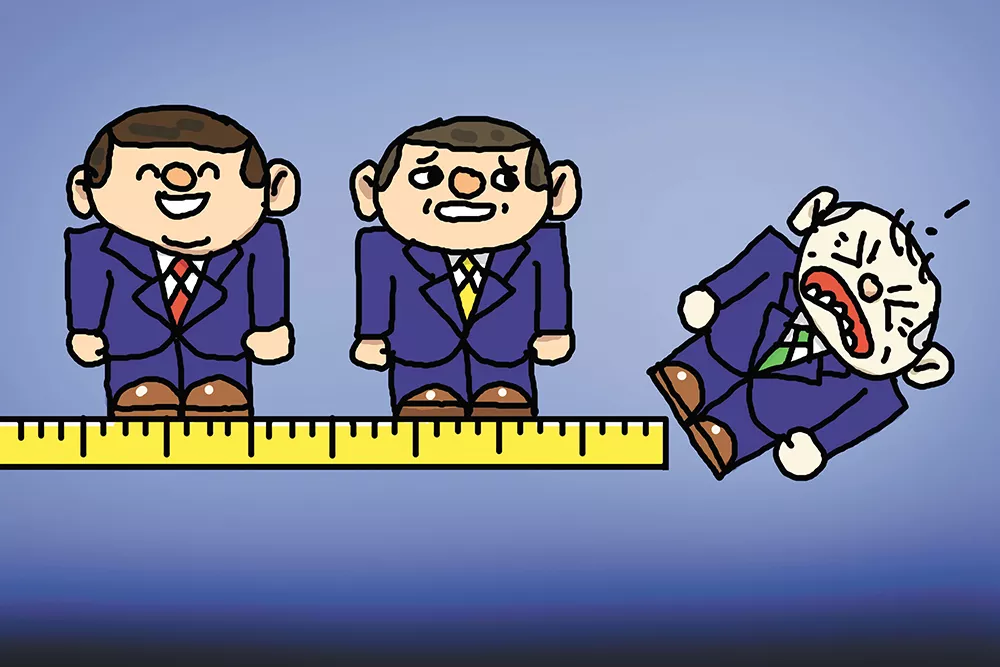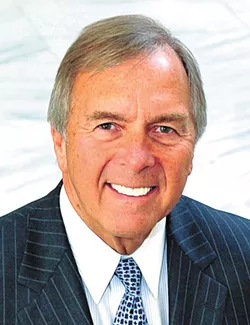Term limits. The Founders considered them, then rejected them, deciding not to make them part of the Constitution. Term limits would curtail the time a federal legislator could serve in Congress, thereby assuring that a new crop of federal legislators would be elected every few years.
Some Democratic presidential contenders made term limits part of their national platform. Term limits have recently been presented to Congress for a vote, excluding federal workers. To only include members of Congress will never pass Congress.
I advocated for term limits in the House years ago, and sought a rule change to assure term limits on all members, but the measure failed. Many members voiced their displeasure, stating I was the reason for their "no" vote — that if a 30-year incumbent could be defeated by a newcomer, then term limits were not necessary.
Various term limits proposals have included 10, 12 and even six years for members of Congress, though now only committee chairmen in the House are term-limited. Under Amendment 22, American presidents may serve for only two terms (eight years); some state legislatures have term-limited their governors. Term limits legislation has been introduced in almost every Congress since 1943; some 74 percent of Americans polled still support term limits for federal legislators. Some federal legislators have gallantly adopted a self-imposed term limits policy.
There are at least six objections voiced by term limits opponents.
- Term limits take away power from voters — voter choices are restricted when people are prevented from supporting a particular candidate because the candidate is term limited.
- Congressional capacity would be severely decreased — because legislating is a highly acquired skill, experience is valuable. Being on the job adds to a legislator's experience, enhancing their ability to pass legislation and interact successfully with other colleagues.
- A term-limited legislator may not develop expertise in an area of concern if that legislator knows that term limits will take effect. The institution would likely suffer.
- Term limits would automatically kick out effective lawmakers. Competent lawmakers would be at a competitive disadvantage. There's no other profession that eliminates serious professionals based on a time limitation. Mastering the ins and outs of the job would be lost.
- Because of the relatively short time allowed under a term limits approach, the term-limited legislator would be more likely to rely on lobbyists for advice and expertise, possibly increasing the revolving door influence that currently exists.
- Experience tells us that the federal bureaucracy would simply wait until a legislator leaves office to adopt a policy to which a legislator objects, thereby allowing an unelected appointee to effect policy administratively over the objections of an elected legislator, thereby negating a voter's preference. Forcing out experienced legislators is not the best way to "drain the swamp." Elections are the best way.
Term limit advocates make a good point that the cost of reelection is now so high that legislators spend too much time seeking reelection dollars rather than attending to America's business.
As a former term limits advocate myself, I once saw the benefits of term limits. I, too, never thought a 30-year incumbent could be replaced, especially since no sitting Speaker of the House had been defeated since the Civil War era, except one, Tom Foley, in my first race.
But it turns out, there is adequate turnover in Congress. In 2018, there were 89 new representatives and nine new senators elected. New blood in Congress brings fresh and innovative ideas; 73 new representatives were elected in 1994. New members are not beholden to old ways of conducting the nation's business.
It's no wonder the Founding Fathers didn't include term limitations in the Constitution. ♦
George Nethercutt served in Congress representing the 5th District of Washington, including Spokane, from 1995-2005.


















